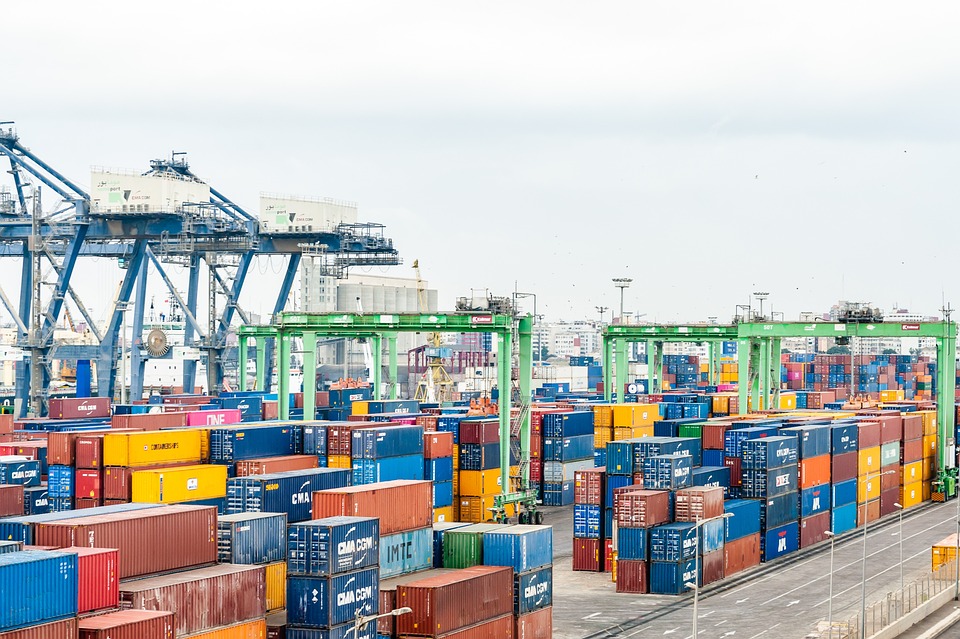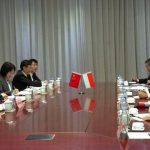Cainiao surcharge waiver may enhance Hong Kong supply chain management, experts say

The recent waiver of a residential surcharge by logistics company Cainiao might enhance Hong Kong’s supply chain management and boost global e-commerce by helping mainland Chinese companies to push their products across borders more easily, economists have said.
But a Hong Kong industry leader and head of a shipping council said the city needed more people skilled in global sourcing and trading compliance if it wanted to become a multinational supply chain management centre, as suggested to Chinese President Xi Jinping by city tycoon Victor Fung Kwok-king.
Willy Lin Sun-mo, chairman of the Hong Kong Shippers’ Council, said the move by the logistics arm of Alibaba Group, owner of the South China Morning Post, was a “radical” one, helped by the operator’s launch of a large warehouse at the city’s airport last year.
“Cainiao is now aggressively seeking more business opportunities to promote Hong Kong as its e-commerce base,” Lin said.
He added the company wanted more people to use its system and “that is why it has offered such a surcharge waiver”.
Cainiao announced last month that residential surcharges would be waived for deliveries in the city with immediate effect – which means users will not be charged extra if they require a door-to-door delivery.
Its 12-storey warehouse at the airport, Cainiao Smart Gateway, covers 380,902 square metres (4 million sq ft) and is equipped with the latest digital technology. It started operations last October.
Business tycoon Victor Fung Kwok-king suggested to Xi Jinping at a meeting in Jinan at the end of May that Hong Kong could develop into a supply chain centre for medium-sized, export-focused businesses from the mainland and overseas.
Fung, group chairman of Hong Kong supply chain management conglomerate Fung Group, raised the prospect as Cainiao announced its residential surcharge waiver strategy.
Financial Secretary Paul Chan Mo-po said in his February budget speech that the city aimed to be a multinational supply chain management centre, in line with the trend of mainland manufacturing enterprises extending their production supply chains abroad.
Lin said Hong Kong’s biggest barrier in achieving its goal was a lack of talent with expertise in global sourcing and compliance experience in the trade rules of other countries.
He added that the problem was caused by Sino-US geopolitical tensions, which had led manufacturing companies from the mainland and Hong Kong to move operations to Southeast Asian countries in the past five years to avoid restrictions imposed by the US government.
“Many US companies have been notified by the US Department of Commerce that their global sourcing [operations] should avoid China and Hong Kong and that even their invoices could not be issued in Hong Kong,” Lin said.
“Hong Kong should train more people in global supply chain management and let the companies post people overseas.”
Lin attributed the talent shortage in part to reduced growth in manufacturing companies over the Covid-19 pandemic.
Tang Hei-wai, an economics professor at the University of Hong Kong, said Cainiao’s surcharge waiver could increase cross-border and digital trade between the city and the mainland.
He added that was an “essential part” of turning the city into a multinational supply chain management centre.
Billy Mak Sui-choi, an associate professor in Baptist University’s accountancy, economics and finance department, said Hong Kong’s status as a global city could make it an important “testing base” for mainland logistics firms that wanted to expand overseas.
“If Cainiao can use its experience in Hong Kong [to optimise] online shopping and delivery [operations], then it could help promote itself overseas,” he added.
Mak predicted that overseas buyers could get products faster from Taobao – China’s largest online marketplace – through Hong Kong if Cainiao’s warehouse stocked up on popular products.
Source : scmp.com



